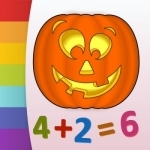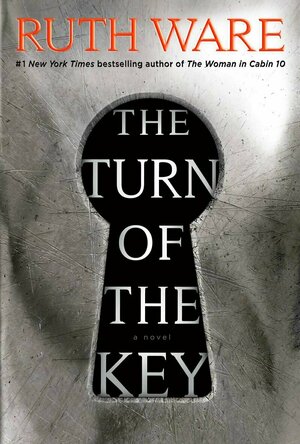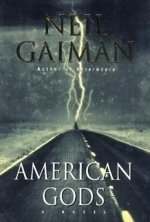
Color by Numbers - Halloween
Games and Education
App
Every year, boys and girls all over the world eagerly await Halloween. For on this night, the most...

BigGuide Brunei Map + Ultimate Tourist Guide and Offline Voice Navigator
Navigation and Travel
App
SAVE HUNDREDS OF EUROS IN ROAMING COST WHEREVER YOU GO. Updated maps. Vocal Navigator. Millions of...

CookPix, my own visual cookbook
Food & Drink and Utilities
App
Appetite comes with watching. CookPix lets your create your own digital recipe photo book on the...

BigGuide Armenia Map + Ultimate Tourist Guide and Offline Voice Navigator
Navigation and Travel
App
SAVE HUNDREDS OF EUROS IN ROAMING COST WHEREVER YOU GO. Updated maps. Vocal Navigator. Millions of...

BigGuide Laos Map + Ultimate Tourist Guide and Offline Voice Navigator
Navigation and Travel
App
SAVE HUNDREDS OF EUROS IN ROAMING COST WHEREVER YOU GO. Updated maps. Vocal Navigator. Millions of...

Offline Maps Globe + Voice Navigator and Video Dash Cam
Navigation and Travel
App
SAVE HUNDREDS OF EUROS IN ROAMING COST WHEREVER YOU GO. Updated maps, very fast and beautiful....

BigGuide Papua New Guinea Map + Ultimate Tourist Guide and Offline Voice Navigator
Navigation and Travel
App
SAVE HUNDREDS OF EUROS IN ROAMING COST WHEREVER YOU GO. Updated maps. Vocal Navigator. Millions of...
Heather Cranmer (2721 KP) rated The Turn of The Key in Books
Sep 26, 2019
The synopsis of the book had such a spooky feel, and I loved the plot of The Turn of the Key. Rowan isn't very happy at her job at Little Nippers, a daycare where she looks after babies and toddlers. Plus, it doesn't pay very well. When she comes across an ad to be a live in nanny for a rich couple's children for a fantastic sum, she jumps a the chance. She's surprised when she gets the job, but she is ecstatic. Heatherbrae, the house where she will nanny, is a smart house complete with an app that controls everything in the house. When her employers have to leave the next day, she is thrown into her job as a nanny of Maddie, Ellie, and Petra. Strange things start happening such as being woken up in the middle of the night with music blaring from the speakers all over the house and lights being turned on up to full brightness. Items go missing from their original place, and Maddie is a nightmare child to look after. Rowan begins to second guess her nannying job at Heatherbrae, but she decides to stick it out. Unfortunately, a child ends up dead, and Rowan ends up in prison for the child's murder even though she swears she's innocent. Was Rowan framed or was it the work of something far more sinister?
I thought everything flowed smoothly, and The Turn of the Key definitely had me spooked. I kept trying to guess what was going on. The Turn of the Key hints that it could be something paranormal throughout the story, so I kept wondering if it was some sort of ghost or if it was a person. I'd also try to guess who was behind it all, but I was wrong. There are a few plot twists and one major plot twist that blindsided me completely. It was a plot twist that made me actually made my draw drop! I doubt any reader would have or will predict that plot twist. One minor thing that I was left pondering over had to do with the ending when all is revealed. I won't give any spoilers away, but I will say it's never mentioned how a person can get into a certain sealed off room. That's all I will say on that matter because I don't want to give too much away. Other than that, every other question I had was answered by the last page. As for the pacing, it is done perfectly. Not once did I feel as if The Turn of the Key slowed down at all. This is a book that grabs your hand and pulls you along without letting go!
The characters in The Turn of the Key all felt very realistic and fleshed out well enough for everything to be believable. Rowan is a very likable character and kudos for her for actually staying on as a nanny at Heatherbrae when everything went pear shaped. Even though some of the kids were hard to love, she still wanted to do what's right by them. I would have high tailed it out of there quickly if I was in her position! I felt like she dealt with everything to the best of her ability. I admired Jack and how he was willing to help Rowan out. He came across as a very caring man. It was obvious that the character of Jean loved the children at Heatherbrae which made me love her even if she wasn't featured very much. Sandra and Bill (the owners of Heatherbrae and Rowan's employers) were written well. They weren't very good parents I felt. They were too busy with their work to really know their children. Unfortunately, I know this happens in real life too. Maddie had her issues, but I loved how she was written. I felt bad for her because I felt like she was the black sheep of the family. I also felt bad for the oldest daughter Rhiannon. She was another one that seemed to have issues, but I loved her vulnerability at her lowest point. I loved the dialogue between Rowan and Rhiannon. Petra was just adorable, but Ellie was my favorite. She was easily swayed by her sister, Maddie, but I loved when she was away from Maddie and was able to be her own person. I felt she was just the sweetest little girl!
Trigger warnings for The Turn of the Key include profanity, drinking, underage drinking, lying, blackmail, a child's death, marital cheating, and mentions of sex (although not graphic).
Overall, The Turn of the Key is such a well written book. The plot sucks you in from the beginning, and the characters are all very interesting! I would definitely recommend The Turn of the Key by Ruth Ware to everyone age 16+ who enjoy a fantastic psychological read!
Cynthia Armistead (17 KP) rated American Gods in Books
Mar 1, 2018
I've certainly read some short stories, too. The most memorable, <a href="http://en.wikipedia.org/wiki/Snow,_Glass,_Apples">"Snow, Glass, Apples"</a> was reprinted in an anthology I read recently. I find it disturbing, so I won't re-read it. Well-written, of course—it wouldn't be so very memorably distressing if it weren't so masterfully done! (I found the <a href="http://www.holycow.com/dreaming/stories/snow-glass-apples">text online</a> if you care to read it, but please understand that the story deals with pedophilia, necrophilia, and incest here. It is the polar opposite of all things Disney.) Snow White was never one of of my favorite fairy tales, and Gaiman definitely pushed it much farther down the list.
In any case, I don't know what I was expecting from Gaiman, but <i>American Gods</i> wasn't it. I like stories with happy endings, and within the first few chapters I was fairly sure that there wouldn't be one. Is Gaiman fundamentally opposed to joy, or is it just happiness that he doesn't allow?
The novel is epic. It is masterful. All that stuff from the big critics is dead on. The book could be used as the backbone of a mythological scavenger hunt if a teacher were willing to run a very unstructured but engaging course that way. I certainly enjoyed that aspect of it, and it made me glad that I was reading it on my iTouch so that I could look up anything I liked online at any time, no matter where I happened to be (which was almost always at home or somewhere else that had wifi access, happily).
I seldom want to see illustrations in any book, but yes, I think I would like to see good pictures of some of the characters Gaiman described in this one. On the other hand, without artwork I spent time imagining what the characters looked like based on the descriptions. I don't normally stop to do that, as such matters as seldom relevant to a plot, but these beings caught my fancy. Not enough that I would sit through an entire graphic novel, I'm afraid, but if I saw one now I might flip through it to see how the artist's renderings compare with my versions.
I'm seldom able to identify an overall Theme to the books I read. Most of them, honestly, are fluff. I'm fine with that. I read them because they entertain me. <i>American Gods</i> is different. It is entertaining, but it isn't light or fluffy in the least. It definitely has an easily identifiably Theme and Tropes and all those elements that I recall from long-ago classes, the sorts of things that put me off from my original English major because I hated tearing other author's works apart instead of writing anything original. (Now, I begin to understand that we were being taught to recognize what makes for good writing so we might have some hope of possibly creating some of it one day.)
I somewhat timidly conclude that <i>American Gods</i> is the first piece of Literature I've read in a very long time, and well worth the time spent reading it. (I find it rather amusing that it would be British Literature, despite its title, due to the author's nationality.) I'm not going to state the theme, because that would be a spoiler, and I hate putting those in reviews—but it's something that I see as a Truth, and one that needs to be stated far more often, especiallly today. It's even more interesting that it took a Brit to say it.
The book is dark, although it does have some very bright spots in it. I will acknowledge that I was going through a particularly bad time with regards to my health when I was reading it, but I still think it might be best for some people to read this one when in a fairly positive state of mind.


